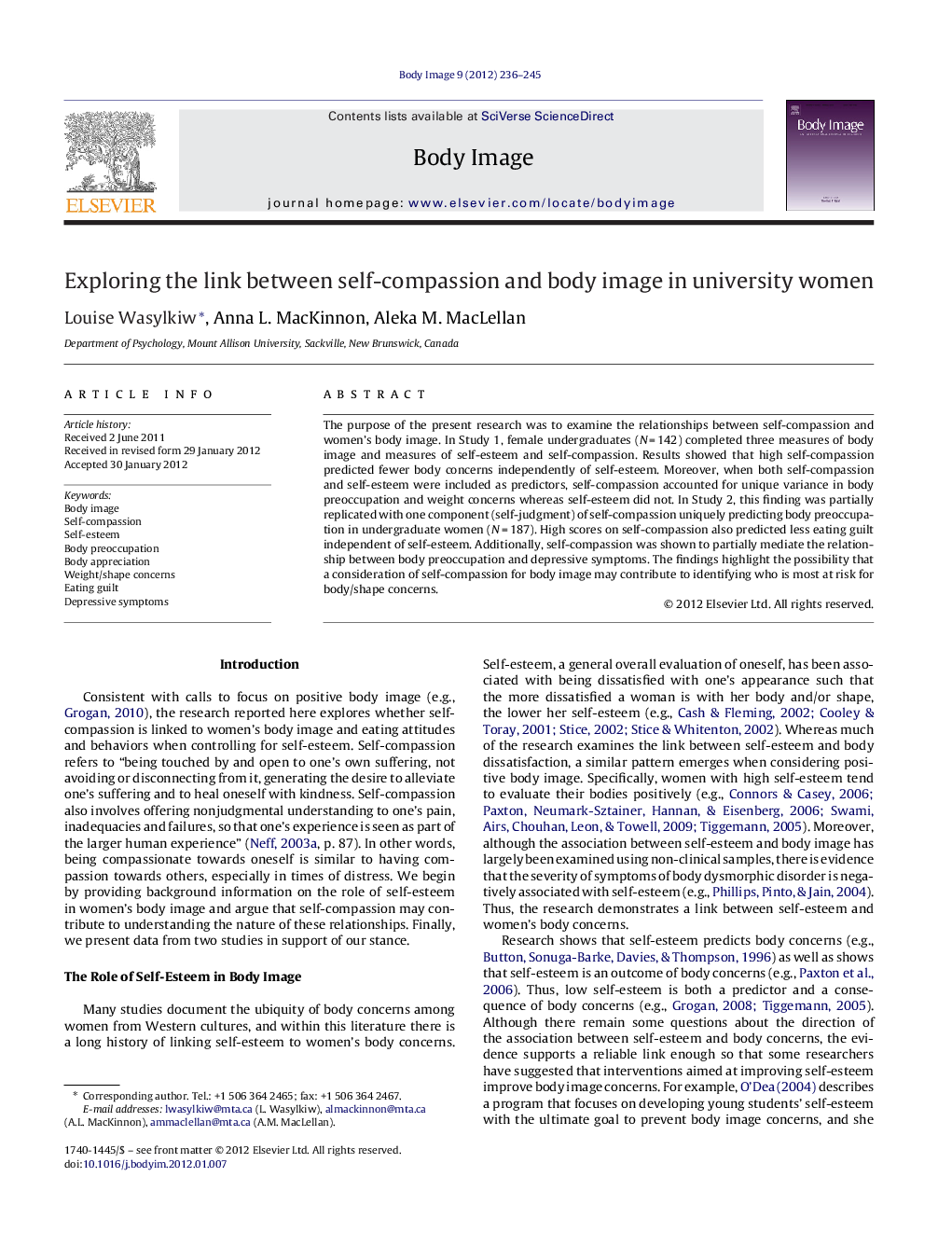| Article ID | Journal | Published Year | Pages | File Type |
|---|---|---|---|---|
| 903127 | Body Image | 2012 | 10 Pages |
The purpose of the present research was to examine the relationships between self-compassion and women's body image. In Study 1, female undergraduates (N = 142) completed three measures of body image and measures of self-esteem and self-compassion. Results showed that high self-compassion predicted fewer body concerns independently of self-esteem. Moreover, when both self-compassion and self-esteem were included as predictors, self-compassion accounted for unique variance in body preoccupation and weight concerns whereas self-esteem did not. In Study 2, this finding was partially replicated with one component (self-judgment) of self-compassion uniquely predicting body preoccupation in undergraduate women (N = 187). High scores on self-compassion also predicted less eating guilt independent of self-esteem. Additionally, self-compassion was shown to partially mediate the relationship between body preoccupation and depressive symptoms. The findings highlight the possibility that a consideration of self-compassion for body image may contribute to identifying who is most at risk for body/shape concerns.
► Self-compassion relates to weight/shape concerns. ► Self-compassion incrementally adds to the prediction of weight/shape concerns. ► Self-compassion incrementally adds to the prediction of eating guilt. ► Self-compassion partially mediates the relationship between body preoccupation and depression.
